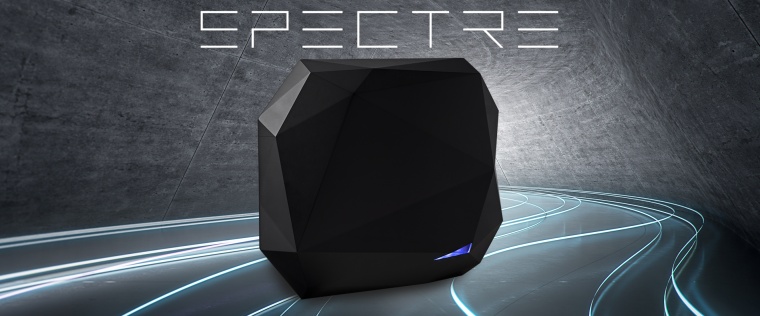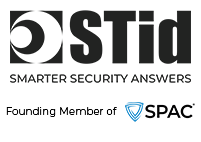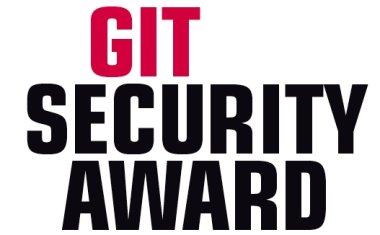Access Control: True Open System
In 1996, STid invented the concept of instinctive security, redefining how organizations can protect their people, property and data with intuitive RFID-based access control reader...


In 1996, STid invented the concept of instinctive security, redefining how organizations can protect their people, property and data with intuitive RFID-based access control readers on the market. With its innovative solutions, France’s leading provider of contactless technologies is seeing double-digit growth. We ask STid’s CEO, Vincent Dupart, about the keys to this success, true openness in the access control market and the future of mobile access.
GIT SECURITY: What are the main advantages your technologies offer compared to traditional systems?
Vincent Dupart: Since 1996, our mission has been to help Security Directors overcome all their managerial and usage barriers that previously limited their efficiency. As a result, a user-focused design has been the basis for all our developments. From our point of view, adoption by end users is key, and we invented the smoothest, simplest and most instinctive identification modes available worldwide. Another big advantage our system offers is that we use open technologies. We base the development of our solutions on standardized open technology and public encryption algorithms. This gives organizations the freedom to choose what suits them best. We rely on the quality of our products and their excellent security to win client loyalty rather than any proprietary technology. An additional plus is, we offer certified security, so it is not just a question of trust. STid is the first manufacturer in the market to be certified by a governmental organization. We are well-known for our products’ high level of security which are OSDP and SSCP compliant. We combine all this with an unmatched service, we are very close to our clients and offer OEM solutions, too. With these tools, our customers are able to develop specific solutions that fit their needs.
You mentioned that you rely on open systems while a lot of manufacturers use the word “open” to describe their products. How does your company differentiate itself from the competition?
Vincent Dupart: Corporate security depends upon comprehensive, autonomous management of access control parameters. Unlike other manufacturers, we believe you should have the means of swiftly adapting to any security update. True autonomy is that you keep control of your security. Our exclusive SECard software and biometric kits for example empower clients to make many changes on their own. We also deliver ergonomic management tools, services, trainings and consulting to help our clients choose and adopt the most appropriate solution smoothly and efficiently using non-proprietary technologies based on international standards. Open systems means also that you are flexible regarding the storage of the data. It could be on your premises or on STid’s secure servers. All solutions are based on interoperable technologies and RFID standards and are compatible with all access control systems on the market, so our customers are flexible to adopt to new technologies.
What are your growth plans for the future in the EMEA region?
Vincent Dupart: We have developed an ambitious investment plan to become European leader in five years’ time and have allocated the financial resources for this plan. Part of the plan are new recruitments in the key regions Germany, Scandinavia and the UK, while we open a subsidary in the US, STid North America. We will strenghten the existing regional teams and build-up new ones. The plan is to have around 30% more staff on the ground by the beginning of 2020. This includes staff for technical support, in the R&D teams and production. In the new STid headquarters we will double the number of employees.
STid is always innovating, what’s new in your offering?
Vincent Dupart: We have designed a new secure and instinctive solution and introduce Spectre, the first born of a new generation of long-range ultra-high-frequency readers enabling a fast vehicle identification process at the gate with the highest security levels. This secure and smart solution has been designed in close collaboration with our customers to ensure that the reader meets the myriad of security requirements of a fast, automatic vehicle identification. Based on the EPC1 Gen 2 standard and UHF passive technologies, Spectre rewrites traditional rules of security, making it more instinctive. The long-range reader offers unmatched reading distances up to 13m and reliability for smooth vehicle access. Its outstanding performances makes Spectre the fastest reader on the AVI market. With STid Mobile ID, we are offering mobile access control with smartphones in an open ecosystem. With the new WEB APIs, we offer a software that is needed to drive the STid Mobile ID Cloud service through a third-party software. Instead of using the Customer WEB Care to create and send virtual cards, you can call APIs from any software at the sole condition to have requested the authorization token. The WEB API can be used to manage virtual cards for a given site. The data storage is on STid secure GDPR compliant servers or on-premises depending on customer needs. A customized version is available, too via an SDK of the application. It is an iOS/Android library under a dedicated software license for third-party developers willing to bring STid virtual cards management in their own Mobile App.
Let’s focus on STid Mobile ID. What are the biggest challenges for an organization that wants to migrate to a mobile access control solution?
Vincent Dupart: Technology is not the limiting factor any more, the people involved have to change their behavior. Access control is still perceived as a constraint and a barrier not as an instrument to make your business life better. Another aspect is the change and migration management especially where you have a mixed smartphone and badges park. Trainings and customized support can help here. To convince all stake holders in an migration process that the whole system is secure is critical for the success. It is not just a question of trust, as a project leader, you have to provide proof that the storage of data on a connected media is fully secure.
BIoT is a strong growth market. What role can mobile access technology play in the Building Internet of Things?
Vincent Dupart: Indeed, the BIoT market grows significantly, rising from $34.8Bn at the end of 2017 to $84.2Bn by 2022, representing a CAGR of 19.4%. Mobile Access technology such as STid Mobile ID could be a corner stone in the ecosystem. Every access control system owns crucial data such as real-time occupancy level of the site or a given area, can track assets (people or object), can determine if a collaborator is still at his office in case a fire alarm is triggered, and leverage on a Mobile Access Control solution to spread messages. So now, imagine if we connect access control systems to lighting systems, electrical management, HVAC, alarm, computers, digital signage etc. – the list goes on. You will find big opportunities in reducing utility spending and equipment costs, and there’s also a productivity or behavioral benefit while optimizing operational expenses by being greener.
Looking into the future, where do you see opportunities in the access control market over the next few years?
Vincent Dupart: The increase of mobile credentials will be a major factor. IHS Markit forecasts that 44 million mobile credentials will be downloaded by 2021, up from just 1 million in 2016. I am convinced that IP access control in general and especially cloud-based access control will dominate the market and Access Control as a Service will have a big impact. Regarding the recognition technology, I think that facial recognition will be more popular than ever and will become a crucial part of access control.
Business Partner

STid Electronic Identification - EMEA Headquarter20 Parc d’activités des Pradeaux
13850 Greasque
France
most read


Training at Fraunhofer SIT: Strengthening resilience against cyber attacks
Knowledge in cyber security is evolving rapidly - continuous training is therefore important.

Is Your Venue Ready for Martyn’s Law?
Martyn’s Law demands stronger security by 2027. Is your venue prepared to protect and respond?

When the Internet stumbles: Why DNS is important
When DNS fails, the internet stumbles-AWS outage proves resilience and redundancy are vital for digital trust

GIT SECURITY AWARD 2026 - The winners have been announced!
GIT SECURITY AWARD 2026: The best safety and security solutions of the year - now an overview of all winners








